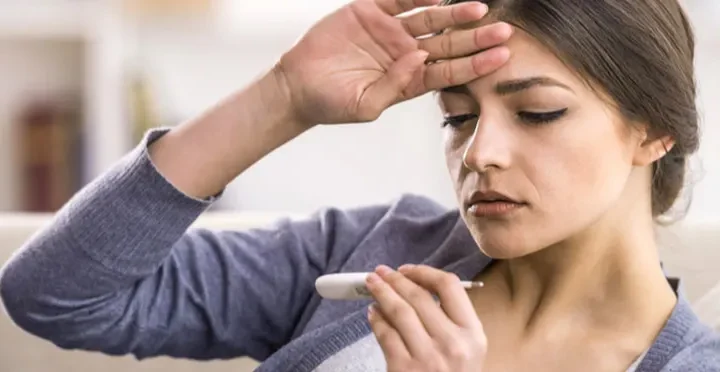One in four people who contracted COVID-19 in Cyprus is a health professional, according to official data for March.
More than half of them being nurses, with their union PASYNO urging the state to test all health workers, while also reporting shortages in protective gear.
An epidemiological survey released by the Epidemiological Monitoring Unit with data covering the period from the beginning of the outbreak in Cyprus until 31 March, shows that 25% out of 267 cases reported last month were healthcare workers.
Specifically, 13% of all cases were nurses, 6% doctors, 4% other health workers, and 2% auxiliary staff.
One in five cases were related to the cluster formed at Paphos General Hospital.
Talking to the Financial Mirror, the press officer for the Cyprus Nurses Union (PASYNO) Theodoros Petelis called on the authorities to stand by health professionals and protect them as they are on the front-line of the battle against coronavirus.
“It’s like we are going to war, with nothing but a wooden shield. And if that is not enough inadequate testing is putting not only our lives but patients’ lives at risk too,” he said.
Petelis called on the government to test all health professionals immediately and provide all staff with the necessary protective gear.
He argued that as the virus is endemic to the community, all incoming patients must be treated as possible carriers and should be tested while health workers need to wear protective gear irrespective of whether they are stationed at a ward with coronavirus patients or not.
“As a union, we demand that the country’s entire population be tested, but priority needs to be given to people working in Cyprus’ hospitals.”
Petelis said at the moment testing is inadequate, with results in some cases, as in the cases of health workers at Paphos Hospital, coming back after six days.
“We have colleagues who were going about their work unaware during those six days before they were informed that they were positive to the virus”.
He claimed many of the nurses in state hospitals work in a number of wards, hopping from A&E to the cardiological ward and then to an orthopaedic ward.
He called on authorities to listen and take their warnings seriously as the lack of health workers, due to the large numbers who are either falling sick or being sent home to self-isolate after coming in contact with a known case, is putting immense pressure on the health system.
Petelis also said that authorities should take into consideration that the drop in numbers of nurses available is also dangerous as there is only a limited number of staff trained to install and use ventilators.
“The health services are working on obtaining more ventilators and increasing ICU beds, but there is not enough trained staff to handle this equipment.”
Meanwhile, as the survey indicates, the cluster at Paphos General played a significant role in boosting the spread in the community, as one in five of all local infections (183) were related to the hospital.
Locally acquired infections — index cases and close-contacts of confirmed cases – accounted for 72% (or 183) of the cases; 20%, (or 37), were related to Paphos General Hospital.
This has pushed up the rate in Paphos which now has 28% of all COVID-19 cases reported.
By location breakdown, 77 cases, or 29%, were reported in the district of Nicosia; 75 or 28%, in Larnaca; 61, or 23%, in Paphos; 30, or 11% in Limassol; 16, or 6% in Famagusta; four, or 2%, in the British Bases.
Coronavirus hotspots
Notably, 15% or 39 cases out of the 267 COVID-19 cases detected in Cyprus by March 31 were reported in Aradippou, Larnaca, making the municipality one of two hotspots, along with Paphos.
The high number of cases in the area prompted health authorities to start a testing programme exclusively for Aradippou residents in a bid to stop the virus from spreading further.
Testing began on Friday at a drive-through facility set up at the parking lot of Saint Loucas church in Aradippou. Residents are given an appointment over the phone to visit the drive-by facility.
The 267 positive cases were identified after tests performed by the Cyprus Institute of Neurology and Genetics and the Microbiological Laboratory at the Nicosia General Hospital.
Since March 31, private clinical laboratories have also been carrying out COVID-19 tests.
The median age of cases detected is 48.5 years.
By age group, cases included 11 children and adolescents aged 0-17, which corresponds to 45 of all cases, 175 adults aged 18-59, 66%, and 78 people aged 60 or older, 30%.
The age of three cases has not been recorded at the moment.
Men seem to be more susceptible to the disease with 57% of cases being male and 43% female.
In total, 30%, or 81 patients received hospital care, and 29 patients or 36% were discharged.
Overall, 14 cases (17% of all hospitalized patients) were admitted to ICU, of which 9 were still in ICU as of March 31.
The median age of patients admitted to ICU was 68.
Until the end of March, eight people had lost their lives with the fatality rate standing at 3%, according to epidemiological data.










